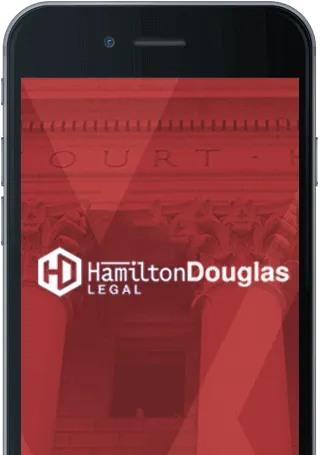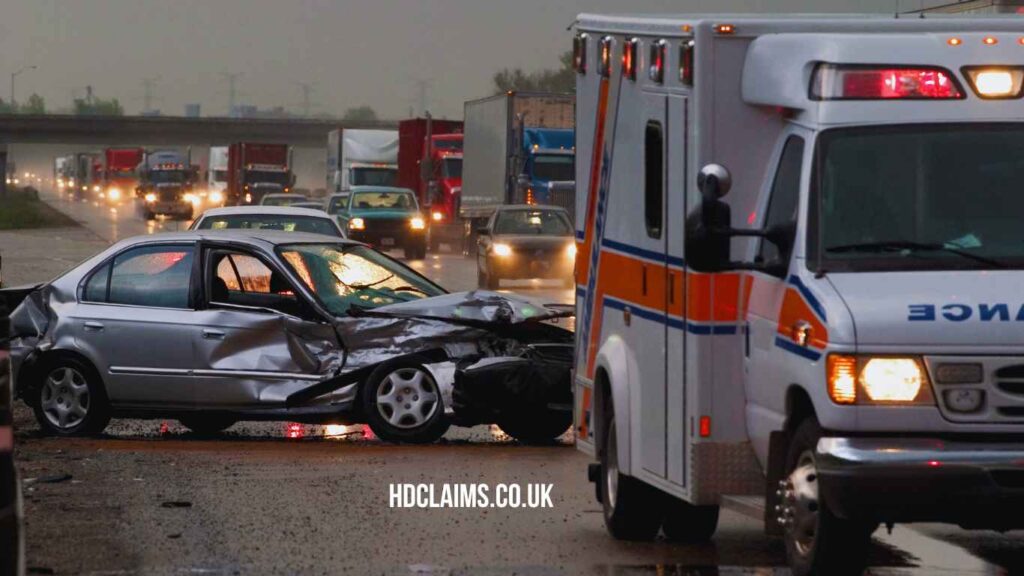
Sarah John's
Legal Writer
While most doctors in Scotland are conscientious and hardworking, there are times they make mistakes. If something like this happens to you and you suffer harm, you can claim medical negligence. However, proving your medical negligence claims in Scotland can be challenging, but if you follow the right steps, it becomes manageable.
Table of Contents

Get In Touch With Your Local Office:
With local knowledge and a national network of experts, we have the experience you can count on.
1. Gathering Evidence and Medical Records
The initial step in a medical negligence case begins with gathering evidence and medical records; these documents are the foundation of your case.
Your medical records contain essential details regarding your diagnosis, the treatment you’ve received, and the treatments you are currently receiving. These can include but are not limited to your test results, doctor’s reports, prescription information, and any related emails between you and your doctor.
These records can serve as crucial evidence in your medical negligence case. They can reveal if there were any misdiagnoses, delays in treatment, incorrect medications prescribed, or any other forms of negligence in your medical care.
Under the Data Protection Act 2018, you have the legal right to request a copy of all your medical records. The health provider, be it your GP surgery, dental practice, or hospital, has a legal obligation to provide you with these documents within a month of your request, although they may charge a reasonable fee.
Gather as much information as possible, as it paints a more comprehensive picture of your situation, helping to strengthen your medical negligence claim.
2. Proving the Breach of Duty
The second critical stage in a medical negligence case involves proving a breach of duty. In Scotland, healthcare professionals have a duty of care towards their patients. This means they must provide a standard of care that a competent medical professional in the same field would provide.
Proving a breach of duty is not as simple as showing that you’re unhappy with your treatment or something went wrong. Instead, you must demonstrate that the care you received was below the standard that can reasonably be expected from a competent professional in the same field.
For example, if a surgeon makes an error during a common procedure that a competent surgeon would not, this could be seen as a breach of duty. Similarly, if a doctor prescribes a drug without checking your medical history for potential drug mismatch, this could also be considered a breach of duty.
It is not just about proving that there was a mistake but also demonstrating that the error was preventable with reasonable care.
3. Opinions From Independent Medical Experts
The next step in proving a medical negligence case involves obtaining the opinions of independent medical experts. The opinions of independent medical experts can provide an unbiased assessment of the treatment you received. These professionals can examine your medical records and the details of your case and provide an expert opinion on whether the standard of care you received was adequate.
These medical experts are usually experienced healthcare professionals from the same field as the negligent medical professional. Their role is to determine if the healthcare professional in your case acted in a way that a reasonably competent professional in the same field would have acted under the same circumstances.
For example, if your case involves surgery, a surgeon from the same speciality would examine the details of your case. They would then provide their opinion on whether the procedure was carried out to an acceptable standard and, if not, whether this has directly led to your injury or harm.
These expert opinions are crucial in medical negligence cases and often determine the success or failure of your claim.
4. Records Of Expenses
The fourth essential stage in proving a medical negligence case involves meticulously maintaining records of all your expenses. In Scotland, just like the rest of the UK, these records are key in quantifying the financial impact of the negligent treatment on your life.
Expenses related to a medical negligence case aren’t limited to direct medical costs, such as hospital bills or medication costs. They also include any other costs you have incurred due to the negligence.
This could include travel expenses for medical appointments, costs for home care or rehabilitation, or even costs of modification to your home to accommodate any disability resulting from the negligence. Furthermore, you should record the loss of earnings if you have to take time off work because of negligent treatment or if you cannot work forever.
Keeping track of all these expenses can be challenging, but it’s critical to ensure you receive a fair amount of compensation. These records are solid evidence of the financial impact of the negligence on your life.
Even minor expenses can add up over time, so keeping detailed and accurate records from the start is crucial. This careful approach can make a big difference in the outcome of your medical negligence claim.
5. Witness Statements
The next step in building a robust medical negligence case involves obtaining witness statements. Witnesses can include anyone who has firsthand knowledge of your treatment or the lack thereof. This could be a family member who was present during a consultation, a friend who has seen the impact of the negligence on your daily life, or even another healthcare professional who can provide an objective view of the care you received.
Each witness statement is a detailed account of what the person saw, heard, or knows about your case. These statements can help reinforce your claim, providing further evidence of medical negligence.
For instance, a family member might be able to testify about the distress caused by the negligent treatment. At the same time, a healthcare professional might be able to provide a detailed account of the standard of care that should have been provided.
Collecting witness statements can be lengthy, but it is extremely important for your case. These statements offer an additional perspective on your case, and in some cases, they might be the deciding factor in proving the negligence claim.
6. Legal Representation and Case Building
The next step in making a medical negligence case is securing legal representation and constructing a solid case. Legal representation refers to hiring a solicitor specialising in medical negligence.
Having an experienced solicitor by your side can make all the difference, as they are experts in the intricacies of Scottish law and fully understand the medical terminology and procedures involved. If you are worried about their fees, you can hire a solicitor on a no win no fee basis.
Your solicitor will guide you through every step of the medical negligence claim process, from gathering evidence and medical records to obtaining independent expert opinions and witness statements. They will help ensure all these pieces come together to build a strong case.
Moreover, they will represent your interests, ensuring your rights are protected. They’ll negotiate with the healthcare provider or their legal team and, if necessary, represent you in court. They will also help you understand what kind of compensation you can expect to receive based on your circumstances.
Building your case involves creating a clear and concise narrative demonstrating how the negligence occurred and its impact on your life. This includes documenting all evidence and detailing the financial losses and physical and emotional toll the negligence has taken on you.
Securing the right legal representation and meticulously building your case is critical in pursuing a medical negligence claim. While it may be a daunting process, remember you don’t have to go through it alone.
7. Preparing for Negotiation or Trial
Preparing for negotiation or trial is a critical phase in a medical negligence case. This stage requires thorough groundwork and strategic planning, usually under the guidance of your legal representative.
The first step in this will be reviewing all your collected evidence. This includes your medical records, independent medical expert opinions, records of expenses, and witness statements. This comprehensive review ensures that every piece of evidence supports your claim and that nothing has been overlooked.
Your legal representative will work with you to understand the full extent of your claim, including the time it takes for a medical negligence claim to settle. They will help establish a clear narrative of your experience, focusing on the negligence, its impacts, and the compensation you seek.
Negotiation is often the first step before a trial and may include a first or even second settlement offer to resolve the case more quickly. Your legal representative will communicate with the healthcare provider’s legal team to reach an agreement without needing a court hearing. They will present your case, negotiate on your behalf, and aim to achieve a settlement that fairly compensates for the negligence you experienced.
However, preparing for trial becomes necessary if negotiations don’t result in an acceptable settlement. This involves more in-depth case preparation, including potentially rehearsing for the court proceedings, arranging for witness appearances, and coordinating with medical experts.
8. Presenting Your Case in Court
If the negotiations with the opposite party fail, the next step is presenting your case in court. This process requires careful preparation and strategy, often managed with the support of a Solicitor.
Presenting your case in court is about more than just telling your story. It’s about presenting your evidence in a structured, logical, and persuasive manner. This includes medical records, independent medical expert opinions, records of expenses, and witness statements.
Your solicitor will take the lead in presenting the case. They will explain your circumstances to the court, highlighting the negligence you experienced, demonstrating the breach of duty, and illustrating the impact this has had on your life.
During court proceedings, the defence will also have the opportunity to present their case. This might include their medical experts or evidence they believe negates or lessens your claim. Your legal representative will have the chance to counter these points and question their witnesses, reinforcing your argument and maintaining the strength of your case.
Presenting a case in court can be a daunting experience, especially given the personal and sensitive nature of medical negligence cases. However, your solicitor will be there to support you, providing their expertise and ensuring your voice is heard.
How Our Experts Assist with Car Crash Compensation?
Dealing with injuries, car repairs, and financial struggles is a lot to handle; this is where our skilled team comes in. Our panel of solicitors specialise in helping clients with Personal Injury Claims Scotland and ensuring they receive the compensation they deserve.
When you contact us, we will analyse the specifics of your accident and guide you through the claims process. If we feel your case is strong, we will connect you with expert solicitors from our panel who work on a No Win No Fee agreement. This means there is no financial risk for you—if we don’t win your case, you won’t have to pay anything.
Our team handles everything, from evidence collection to insurance negotiations. If the other driver is uninsured or cannot be traced, we can help you make a claim with the Motor Insurers’ Bureau (MIB). Our goal is clear: to ease your concerns and advocate for the compensation you deserve, allowing you to concentrate on your recovery and rehabilitation.
When Am I Entitled To Make A Medical Negligence Claim?
You may be wondering when you’re entitled to make a medical negligence claim. In Scotland, you can make a claim when you believe you have suffered harm due to the negligence of a healthcare provider.
Here’s what that means in simple terms:
There was a duty of care:
Healthcare providers have a responsibility to provide a certain level of care. This is known as a ‘duty of care’; you must prove that the health care provider in question had a duty of care towards you.
The duty of care was breached:
You have to show that the healthcare provider did not meet the standards of a reasonably competent healthcare professional in the same field. This means they made mistakes or provided care that was below the expected standard from a competent professional in their field.
You suffered harm as a result:
It’s not enough to show that there was a mistake or substandard care. You have to show that you suffered an injury or harm due to this breach of duty of care. This could be physical harm, such as an injury, or psychological harm, such as severe stress or anxiety.
The harm was due to the negligence:
You also need to prove that the healthcare provider’s negligence directly caused the harm you suffered. For example, if you had a surgical procedure and then developed an infection because the surgical instruments were not properly sterilised, you may be eligible to make a clinical negligence claim.
DEDICATED CLAIMS ADVISORS
Our dedicated claims advisors are always available to offer free legal advice.
100% NO WIN NO FEE CLAIMS
All our claims are processed on a No Win No Fee basis; you pay nothing if you lose.

MILLIONS SECURED IN DAMAGES
To date, we have secured millions in damages.
THOUSANDS OF SATISFIED CLIENTS
To date, we have helped thousands of clients recover compensation and continue to do so.
How Difficult Is It To Prove Medical Negligence?
Proving medical negligence can be quite challenging; here is the list of challenges you might have to overcome.
Complex Medical Evidence:
Medical negligence claims often depend on intricate medical details. This can make it difficult to understand and explain where the negligence occurred and its impact on your health.
Standard of Care:
It’s necessary to prove that the care you received fell below the standard expected of a reasonably competent healthcare professional in the same field. This often involves understanding and interpreting complex medical procedures and practices.
Causation:
Even when it’s clear that the standard of care was not met, you still need to prove that this directly led to your injury or illness. Making this link can be complicated and typically requires the input of medical experts.
Legal Process:
The legal processes involved in a medical negligence claim can be daunting. From understanding the law to following the correct procedure, there’s a lot to get to grips with.
Resistance from Healthcare Providers:
Healthcare providers, and their insurers, often robustly defend against medical negligence claims. They have access to legal resources and experts, which can make it more difficult to prove your case.
Given these complexities, it’s often important to seek the help of a legal professional if you believe you have been a victim of medical negligence. A solicitor can guide you through the process, gather the necessary evidence, and ensure your case is as strong as possible.

Can’t Work Due To Illness Or Injury?
Use our free online claim check tool and find out in minutes if you have a claim.
How Can Working With A Solicitor Help You Prove Medical Negligence?
Working with a solicitor can be extremely beneficial when trying to prove medical negligence. Solicitors play a crucial role in Personal Injury Claims In Scotland; Here is how they can help you:
Expert Guidance:
Solicitors specialising in medical negligence have extensive knowledge of the law, medical procedures, and how to navigate the legal system. They can provide expert advice, helping you understand your rights and the steps you need to take.
Collecting Evidence:
Solicitors know what kind of evidence is needed to support your claim and how to obtain it. They can help gather medical records, secure witness statements, and collect details about your expenses and injuries.
Medical Experts:
Solicitors often have networks of medical experts who can provide independent opinions. These experts reports can confirm if negligence has happened and whether this directly caused your harm.
Building Your Case:
A solicitor will help build a robust case by piecing together all the evidence. They will establish a clear and persuasive narrative to demonstrate the negligence and its impact on your life.
Negotiation and Representation:
Solicitors are skilled negotiators who know how much compensation you can claim and will aim to achieve the best possible settlement for you. If your case goes to court, your solicitor will represent you, present your case and fight for you to win you the maximum compensation you deserve.
Reducing Stress:
Dealing with a medical negligence claim can be stressful. A solicitor can manage most of the process, allowing you to focus on your recovery.
In conclusion, working with a solicitor can significantly enhance your chances of successfully proving a medical negligence claim. They provide valuable expertise and support, guiding you through the complex process and working to achieve the justice you deserve.
Easy Ways To Get In Touch
We are here to help. Give us a call, request a call back or use our free claim check tool to get in touch with our friendly legal team. With local knowledge and a national network of experts, we have the experience you can count on.






